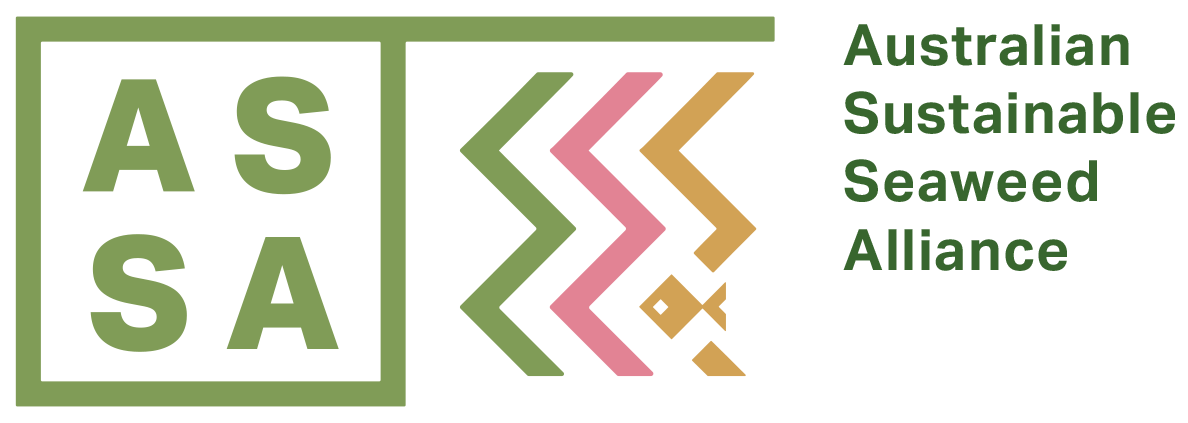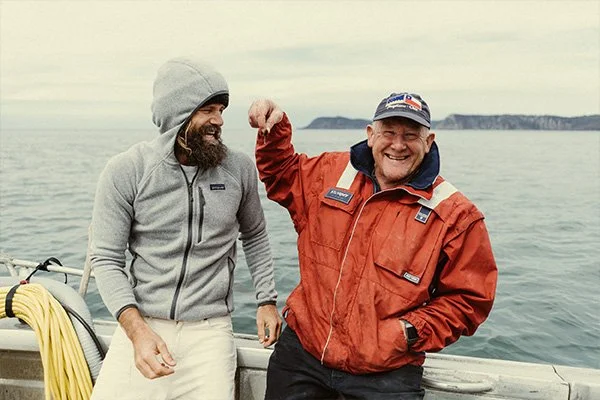The genie in the bottle is a planet-saving business.
Sea Forest Co-Founder and CEO, Sam Elsom with Sea Forest CTO, Dr Craig Sanderson. Image source: Sea Forest
The commercialisation of an Australian technology that turns a native seaweed into a livestock feed is thrusting agriculture and aquaculture to the forefront of the world’s fight to arrest climate change.
A large glass flask sits in prominent view on dairy farmer Richard Gardner’s sideboard for all to see. It’s an unappetizing-looking reddish oily mush, but for the Tasmanian dairy farmer and his family it represents one of the most exciting technological developments in their industry’s modern-day history.
In fact, for Richard Gardner, it represents their license to farm into the future. It is also the family’s personal affirmation that our planet needs their help; and the help of all livestock farmers. It’s why he has kept this one flask for posterity. The content of the flask is a feed supplement made from Asparagopsis seaweed. It is the product of Australian research and subsequent commercialisation by Tasmanian start-up company, Sea Forest – and it stands to become a breakthrough world-wide in helping to mitigate climate change. When used as an additive in livestock feed, Asparagopsis has been proven to reduce the animals’ methane emissions by 98%. When you consider the world’s vast flocks and herds are responsible for 40 per cent of this greenhouse gas which traps 30 per cent more heat in the atmosphere than carbon dioxide, the potential impact is clear.


